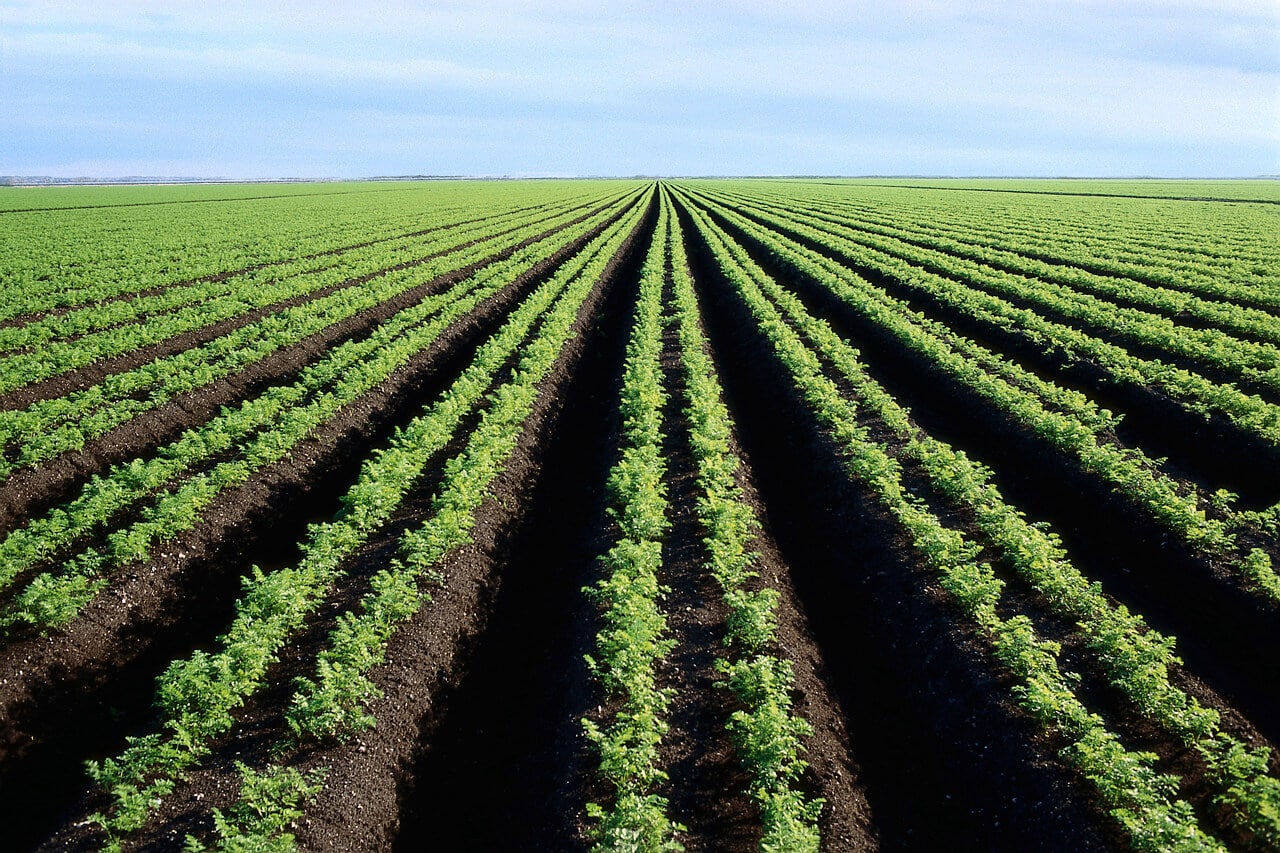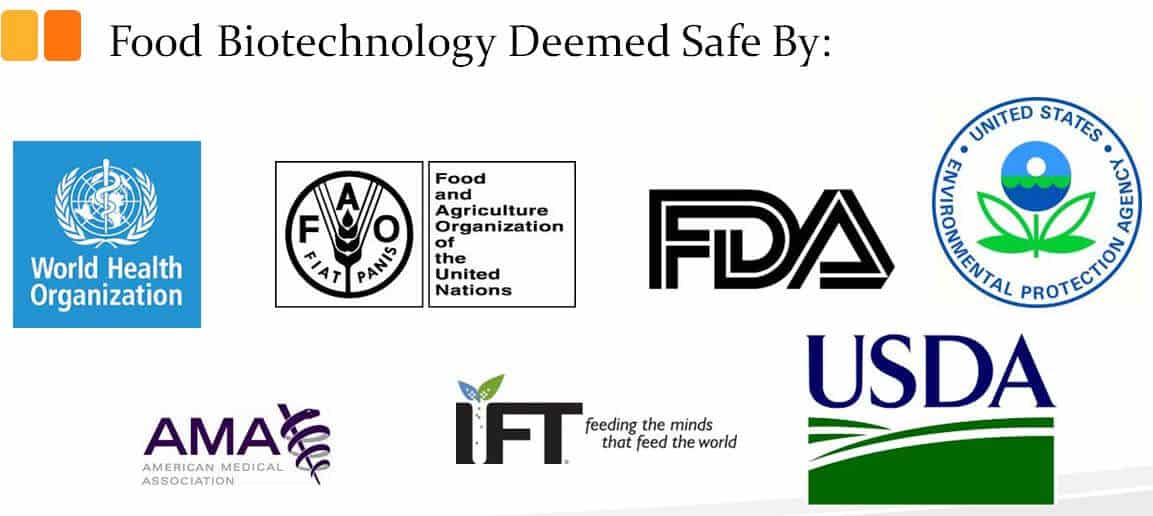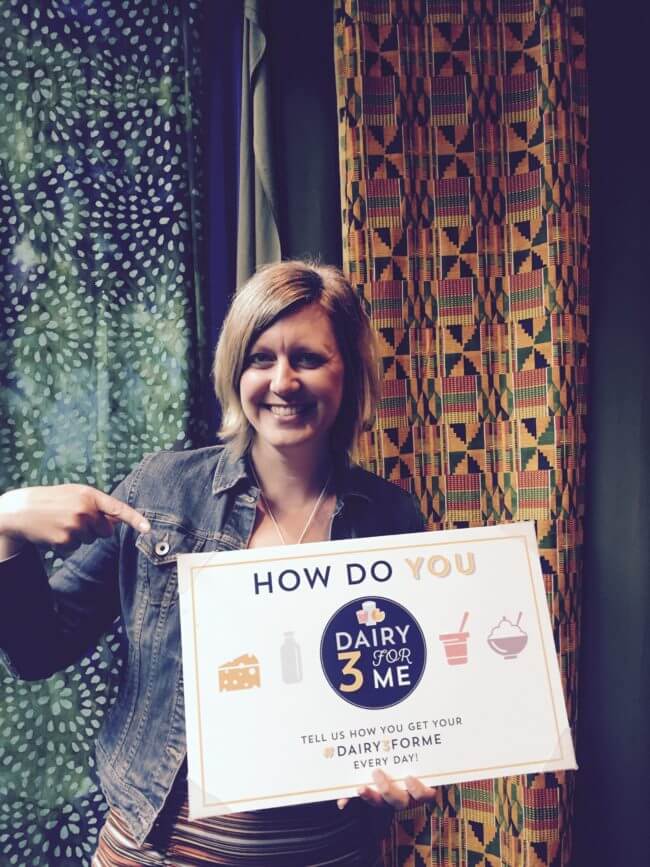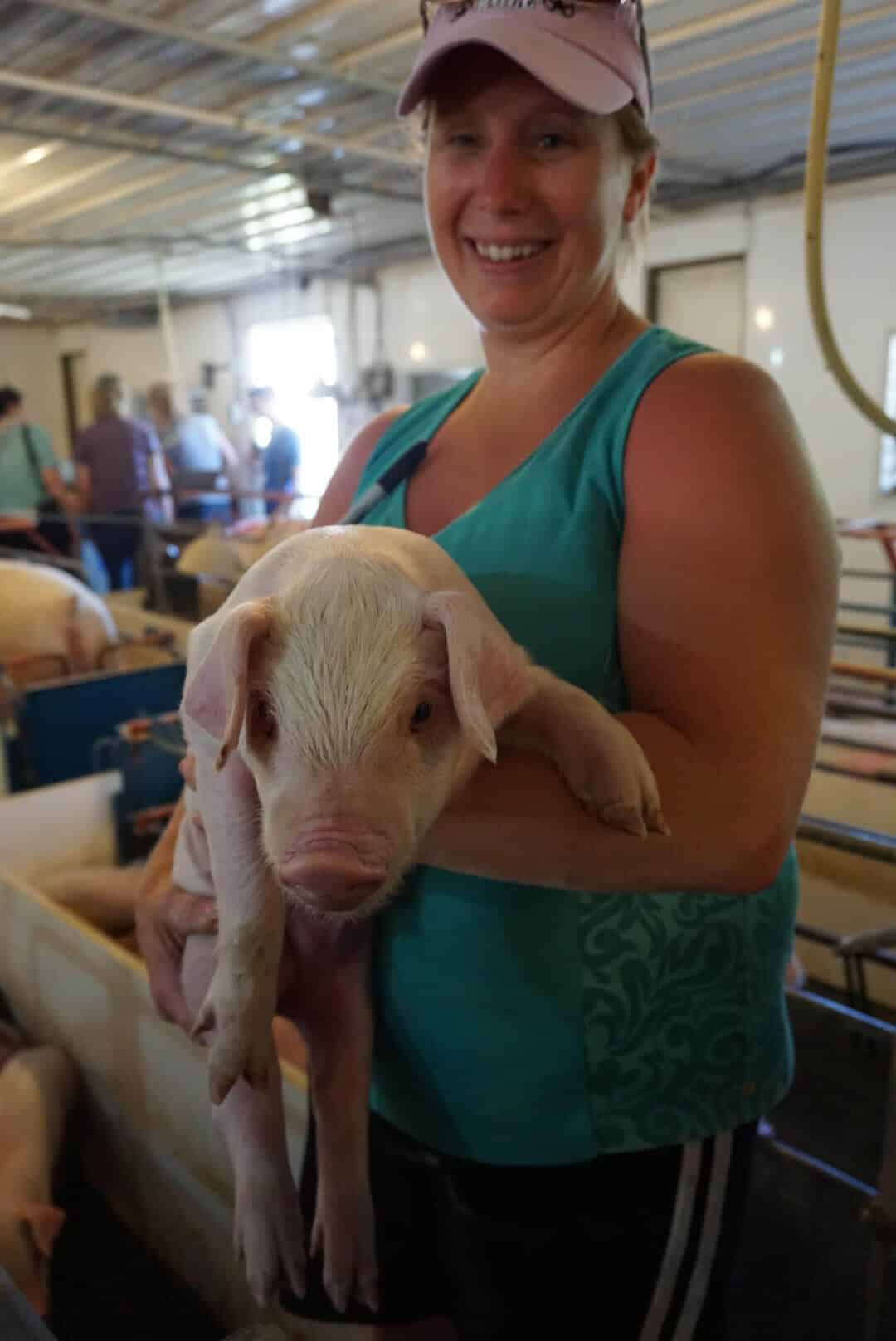What’s The Truth About GMO? Food Biotechnology Series
Standing in the aisle as the supermarket dietitian, I get asked all kinds of questions. Recently, a few moms were asking me “Where are the non-GMO (non genetically modified organisms) foods?”. They were almost in a panic – as if feeding their families the “wrong” foods was a life and death situation. Why were these mothers concerned? I received varying answers including worries about safety and health, environmental risks, and thinking it’s “not natural”. But what’s the truth about GMO?
I am going to provide truth and insight into this controversial topic with this blog series – and know that I write these blog posts as a health professional who bases recommendations on research backed by science, that’s been peer reviewed and published without media hype. I also write as a mother who strongly desires a healthy family.

GMO or food biotechnology is defined as using biology (science) to create or improve production, tools or processes that result in better nutrition, taste, quality and/or freshness of food. It’s been happening since the beginning of time. It was a tradition for our ancestors to save the seeds from the best plants to get the qualities they preferred. It also became tradition to take pollen from one plant to another for best characteristics. This happened as early as 1800 B.C. This imprecise process takes a very long time. Food biotechnology makes this process of creating better plants to produce better food more specific, more efficient and more precise.
This post will focus only on safety of foods produced with biotechnology, we’ll get to environment, farmers and us as consumers in future blog posts. Here are some facts about the safety of foods produced with food biotechnology:
- It is safe to consume foods produced with biotechnology. Extensive research has been performed by many different entities over thirty years and there hasn’t been a single instance of harm noted anywhere in the world. Foods produced with biotechnology have been on the market for consumption since 1996.
- Consuming foods produced through biotechnology is safe for children, pregnant women and nursing mothers.
- Foods produced with biotechnology are more strictly regulated than any other food. All of the following agencies/organizations agree with the safety of foods produced with biotechnology: World Health Organization (WHO), Food and Agriculture Organization of the United Nations (FAO), American Medical Association (AMA), U.S. Food and Drug Administration (FDA), U.S. Environmental Protection Agency (EPA) and the U.S. Department of Agriculture (USDA).

- The use of food biotechnology itself does not cause food allergies or increase the potential for a food to cause a food allergy.
My source: International Food Information Council www.foodinsight.org
Next blog post in this series? Are there benefits to food biotechnology for our families? Stay tuned.
I would love to hear your questions regarding this topic, please post in the comments.





Thank you so much for getting some accurate information out there!
There’s a huge difference between biotechnology and hybridization. The latter has history behind it. The other is relatively new and certainly hasn’t been researched for how it may affect the children of those fetuses in the womb, nor for long-term effects. It simply hasn’t been in use long enough.
I have to say I’m disappointed that your blog claims the truth, but doesn’t mention that there are many countries that ban GMOs and that you never truly mention the other side of the argument, no matter your conclusion.
New? It’s just bacterial conjugation! In other words, Mother Nature created GMOs!!!
Isn’t it awesome???
You should write a well informed blog, present some actual academic studies for and against GMO and let the people decide. Like LM said about other countries that ban GMO’s, where are their scientific studies and reasoning behind their ban? Just because the organizations in your blog say it’s safe we all should believe them? Look at all the supposedly safe drugs brought to market and now pulled, were their studies of potentially deadly side effects published as the drug was approved?
And why do companies such as Monsanto fight against GMO labeling? These are the same companies that said Agent Orange was safe for our troops, the same company that said DDT was a safe pesticide ‘and does not cause cancer’, these are just a few examples.
Thanks for your comments. Food biotechnology has been a controversial topic for many reasons and it’s hard to know who to believe. That’s why I want to present facts based on reputable sources, published AND peer-reviewed studies. I will continue to research this topic and present you with the most accurate, science-based information you can trust.
Thanks for continuing the debate Jen. In your research please find out ‘why’ GMO food is banned in other countries and ‘why’ Monsanto is fighting to keep it off labels, state by state. You know as well as most of us that there are unsafe chemicals in the food we eat, thankfully the public is starting to make a stand.
Good suggestion. Also, perhaps give the details of what the modification process is. What exactly is being modified. How does the human body metabolize the modified proteins.
[…] covered the safety of food produced with biotechnology, but what about the benefits to […]
Please read this, GMO foods are NOT safe and should be outlawed in the USA
http://theamericancultivator.com/harvard-researchers-discover-the-obvious-gmo-foods-lead-to-digestive-disorders/
Your source links to Wikipedia? They’ve never proven to be 100% accurate or unbiased. Just depends on who’s submitting info.
Thanks for the tip, Rob. I did NOT intend to Wikipedia – and have since fixed the link. Please check out http://www.foodinsight.org for well-researched information on the subject of food biotechnology.
Thanks for your blog, Jen. As a Dietitian and open-minded learner I am still exploring different views and opinions on GMO’s to formulate my own opinion and I’ve struggled to find articles by dietitians that support GMO’s. The info and resources in your blog are very helpful for me. So many other articles argue how GMO’s are dangerous and harmful, but I feel people don’t really understand the science behind food biotechnology and are therefore scared of it. I have struggled with the fact that food biotechnology seems, to me, to be the same thing people have done for thousands of years by cross-pollinating and saving the best seeds to promote desired outcomes. It’s just that with new scientific tools and resources it can be done more efficiently and precisely like you mentioned. So it’s good to read that point of view from someone else.
I would also like to know the reasons behind other countries banning GMO’s. I would also find it helpful to learn how GMO’s have been successful/beneficial in developing countries as well as how much of the U.S. GMO crops actually go toward our food supply (as opposed to fuel production and animal feed)? Thanks! I look forward to reading the rest of the blog series.
RB,
Thank you for visiting and reading the posts on food biotechnology. It’s a controversial topic, and there are a few voices that scream the negative. But through my research, along with the health organizations that support the use of food biotechnology, I am confident in the information I am providing as a nutrition and health professional. I will be providing that global perspective in my next post in the food biotechnology series. So stay tuned!
Thanks much for your comment.
Jen
[…] on food biotechnology – more commonly known as GMO (genetically modified organisms). In part one of my blog series, I covered the safety of foods produced with food biotechnology and part two covered benefits of […]
They are checking for genetic modification being unhealthy. But they are being modified so the plants are resistant to pesticides they use. Are they also checking for the pesticides???? Just wondering.
[…] encourages its readers to visit Jen’s first blog of the series, What’s The Truth About GMO? Food Biotechnology Series, which does a wonderful job of explaining what is a GMO (genetically modified organism) and how […]
[…] encourages its readers to visit Jen’s first blog of the series, What’s The Truth About GMO? Food Biotechnology Series, which does a wonderful job of explaining what is a GMO (genetically modified organism) and how […]
[…] Are foods produced with biotechnology safe for my family to eat? […]